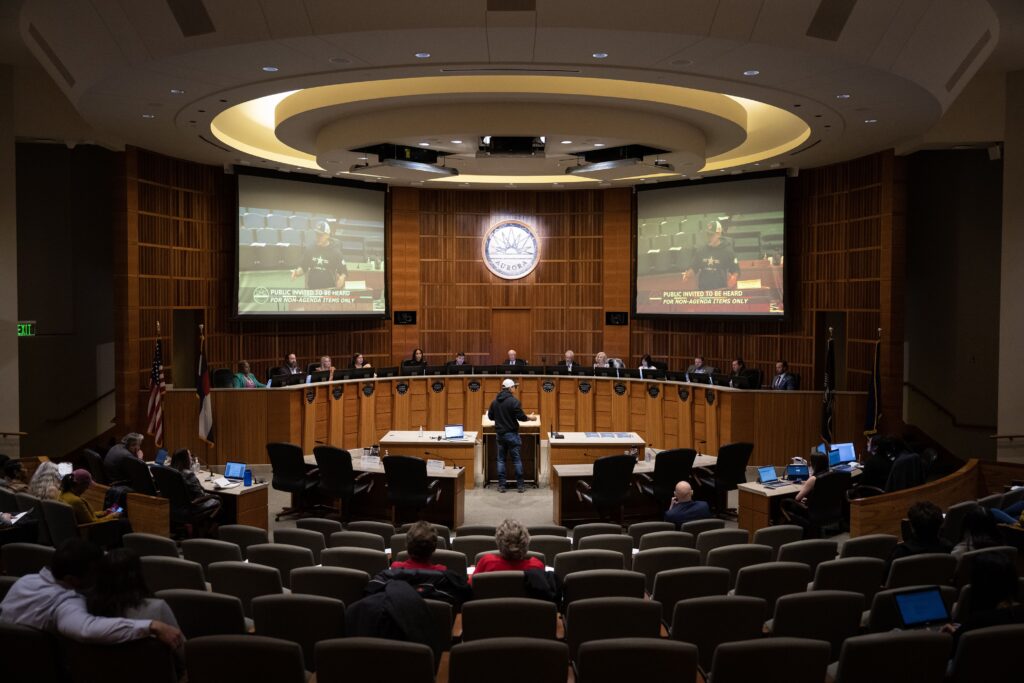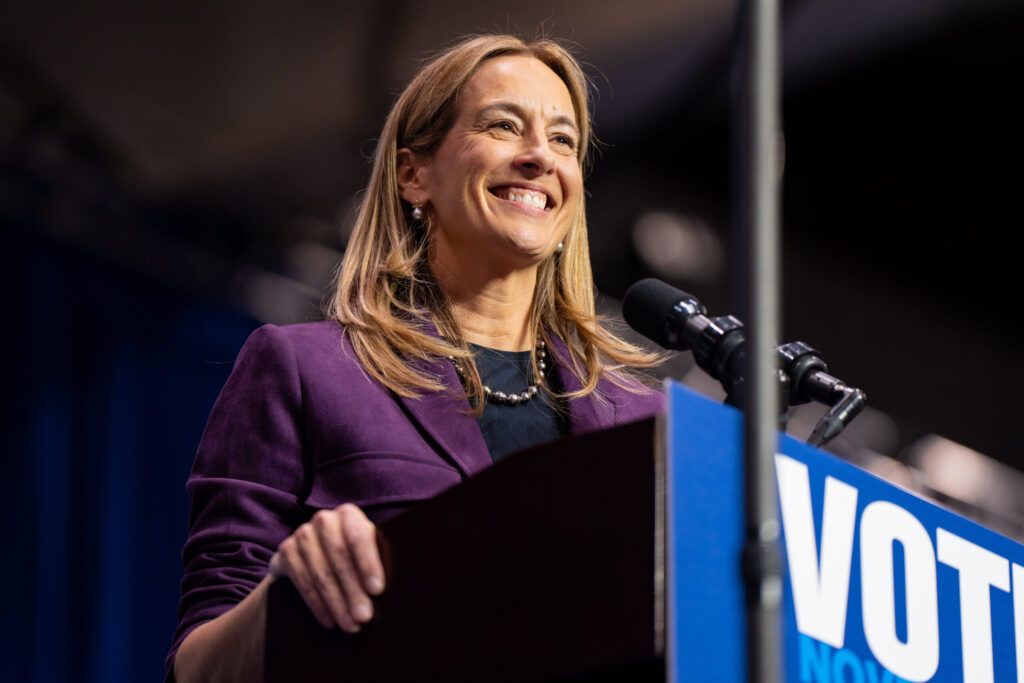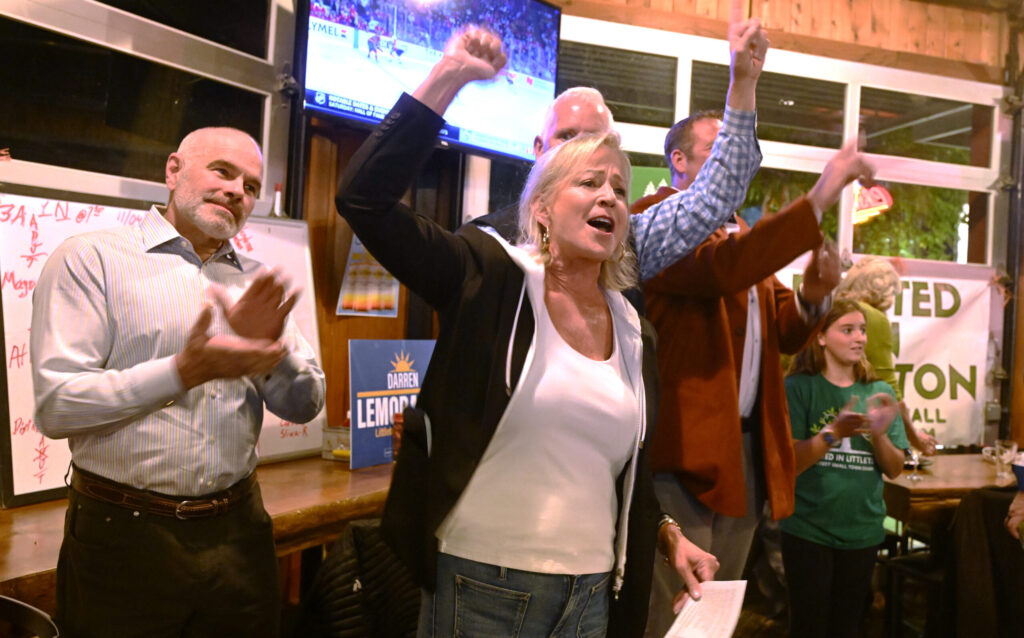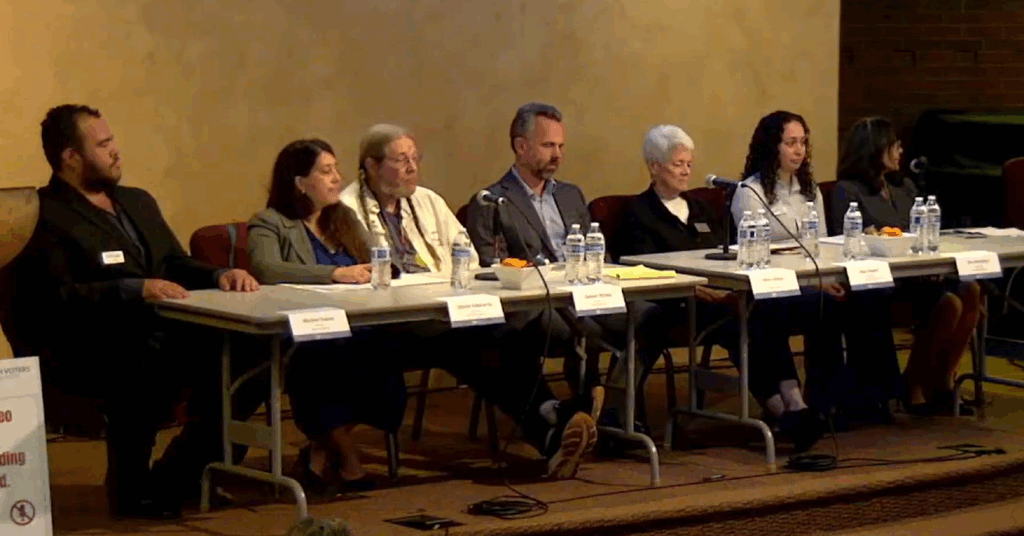Federal judge rejects challenge to Colorado’s ‘chosen name’ law, District 27J’s LGBTQ policy

diane39
A federal judge on Friday rejected an attempt by two parents to block a 2024 Colorado law requiring public schools to use a student’s chosen name, as well as their school district’s corresponding policy intended to support LGBTQ students.
“John and Jane Doe” filed suit in August, arguing Brighton-based School District 27J enabled their daughter to “socially transition” without their consent. The child had asked school personnel to use a new name and pronouns because she identified as a boy — a transition her parents did not support. Consequently, they alleged Colorado law and 27J policy violated their constitutional rights.
U.S. District Court Judge Charlotte N. Sweeney concluded the Does were unlikely to succeed with their lawsuit for several reasons. For instance, the 2024 law requiring educators to use students’ chosen names was enacted more than a year after the Does’ daughter had asked to go by a different name.
Further, Sweeney was unconvinced the governmental policies actually infringed on the Does’ decision-making authority over their children.
“Despite the claim that ‘the District is socially transitioning their children,’ the District is not the decision maker at issue: the student is,” she wrote in a Jan. 24 order. “The Law and Policies only require the District to follow the student’s chosen name and pronouns and to provide support. There is no indication that the Law or Policies provide the District with any decision-making power, and there is no indication that it shifts decision-making power from parents. The power to make decisions regarding a student’s preferred name and pronouns has always resided with the student.”

Attorney David Gartenberg applauds for U.S. District Court Judge Charlotte N. Sweeney at a legal event in Denver on July 21, 2023.
House Bill 1039, enacted last year, deems it discriminatory for public school employees to knowingly address students by a name other than their chosen name — which is the name that reflects a student’s gender identity. District 27J also maintains a set of policies for LGBTQ students, known as the “Toolkit,” providing guidance for employees when helping students navigate their gender identities at school.
The Does, who sought to proceed anonymously in court because it is “fashionable to be LGBTQ+” at their daughters’ schools, alleged their eldest daughter asked her counselor to note in the school’s software that she used non-female pronouns during her first year in high school. The child, identified as A.D., also indicated at the time that she would like to go by a different name.
Although the Does were aware A.D. was identifying as a boy and were concerned about it, she did not feel physically unsafe. A.D. wrote in court documents that her parents did not know she “was being socially transitioned at school.” At the end of her sophomore year, A.D. began informing her teachers and advisors she was again identifying as a girl and using her birth name.
The Does, who identified themselves as Democrats — or, in Jane Doe’s case, a Democrat “until the events alleged herein” — filed suit to block the laws and policies that allegedly left them in the dark about their daughter’s gender identity at school.

“A.D. is subject to pressures at school to maintain — or revert to — her transgender identity,” wrote the Does’ attorneys, who include Republican former Secretary of State Scott Gessler and Harmeet K. Dhillon, a Republican Party official from California who has been nominated to a civil rights post in the Trump administration.
The Does characterized District 27J’s guidance in their court filings as a “Parental Exclusion Policy,” but repeatedly omitted the portion of the policy allowing school staff to talk with students “and parents/guardians” about supporting their gender identities.

At top, School District 27J’s policy. At bottom, the plaintiffs’ citation to the policy. Source: Doe v. Weiser
The defendants, which included 27J and Colorado Commissioner of Education Susana Córdova, countered that the Does were trying to undermine anti-discrimination policies and, if successful, could invite intentional misgendering of other students.
“Plaintiffs ask this Court to break new ground and extend their constitutional parenting rights to require consent every time a school affirmatively allows their child to use a chosen name or pronoun at school. The constitution requires no such thing, and doing so would undermine the District’s duty to ensure that all students, regardless of gender identity or expression, have a safe and supportive learning environment,” wrote the Colorado Attorney General’s Office.
Sweeney, a Joe Biden appointee and the first openly gay federal judge in Colorado, believed the Does had not shown any ongoing or imminent injury from HB 1039 or 27J’s policies. She observed the Does were concerned how the law and district policies might be applied going forward, “which is not enough to confer standing.”
Although the Does argued “peer pressure” may cause A.D. to change her name or pronouns again, Sweeney noted the law “would not apply to a student choosing to use a different name to conform to peer pressure.” Finally, Sweeney added there were no indications the Does’ younger daughter was interested in transitioning her gender.
“The public also has an interest in establishing learning environments free from discrimination, and Defendants have made a clear showing that the Law and Policies facilitate that interest,” she concluded.
Sweeney simultaneously issued an order dismissing Attorney General Phil Weiser as one of the defendants. She noted HB 1039 gives Weiser’s office no enforcement authority over the law. The remaining defendants have also filed motions to dismiss the case.
The case is Doe v. Weiser et al.


















